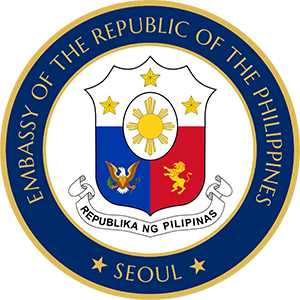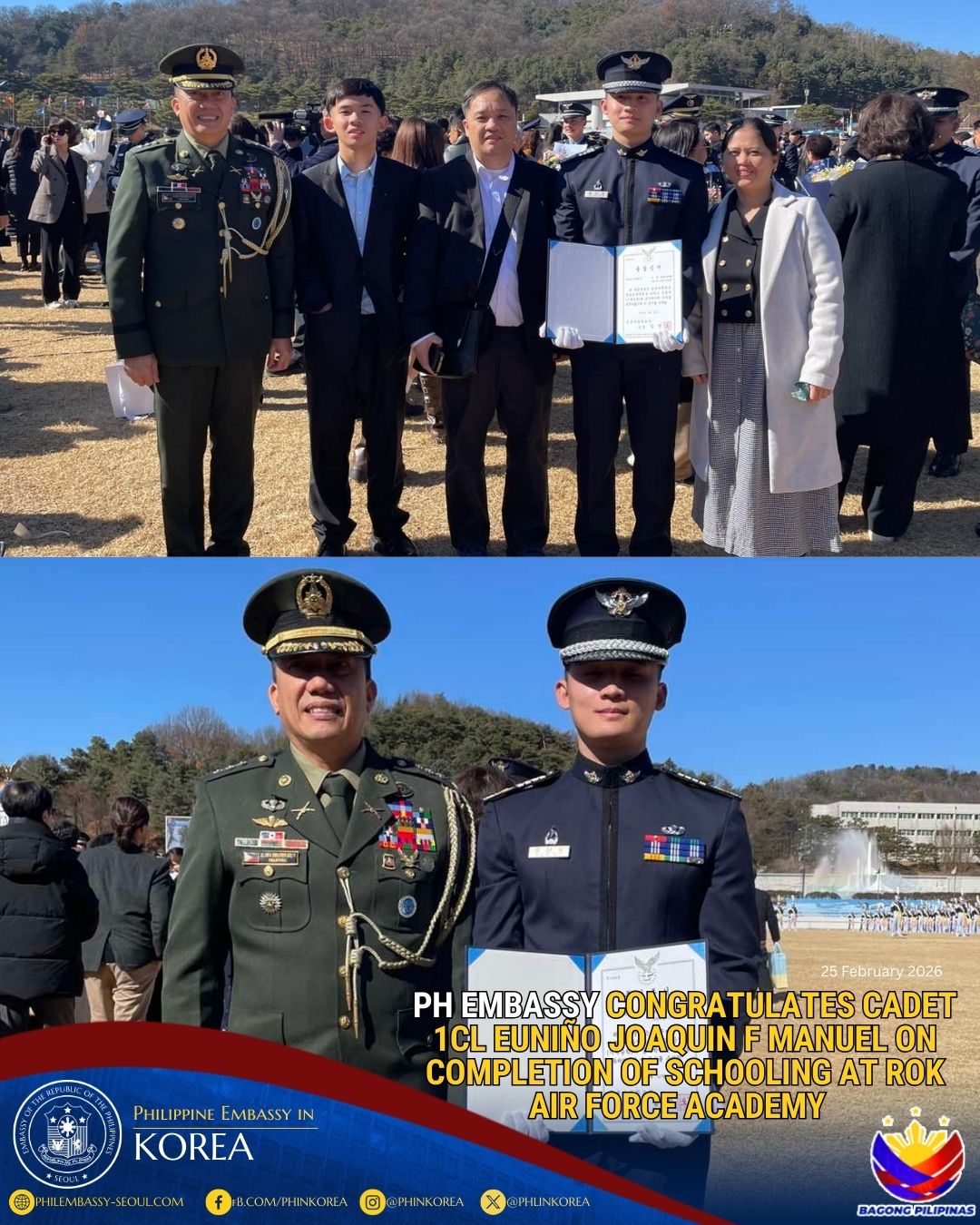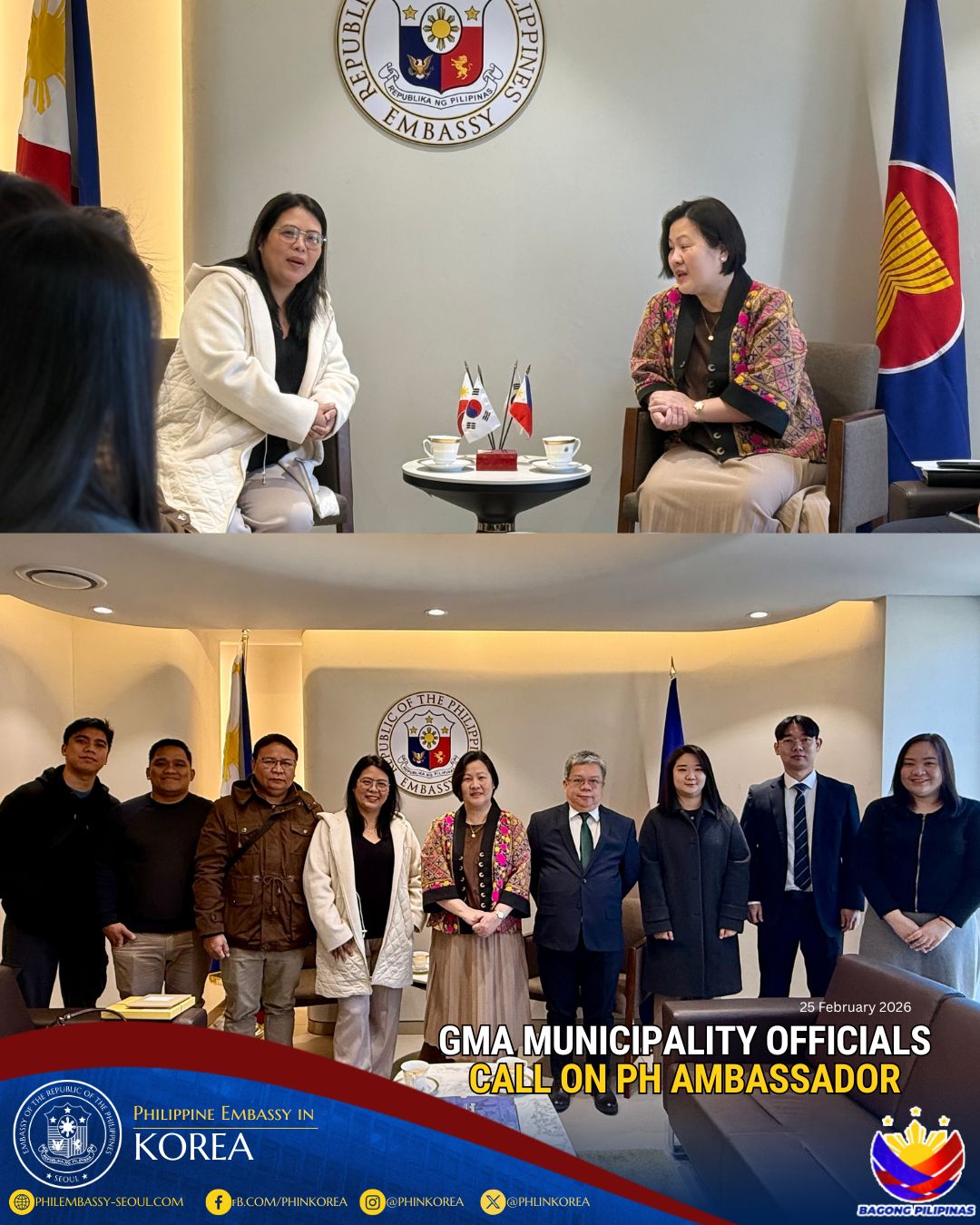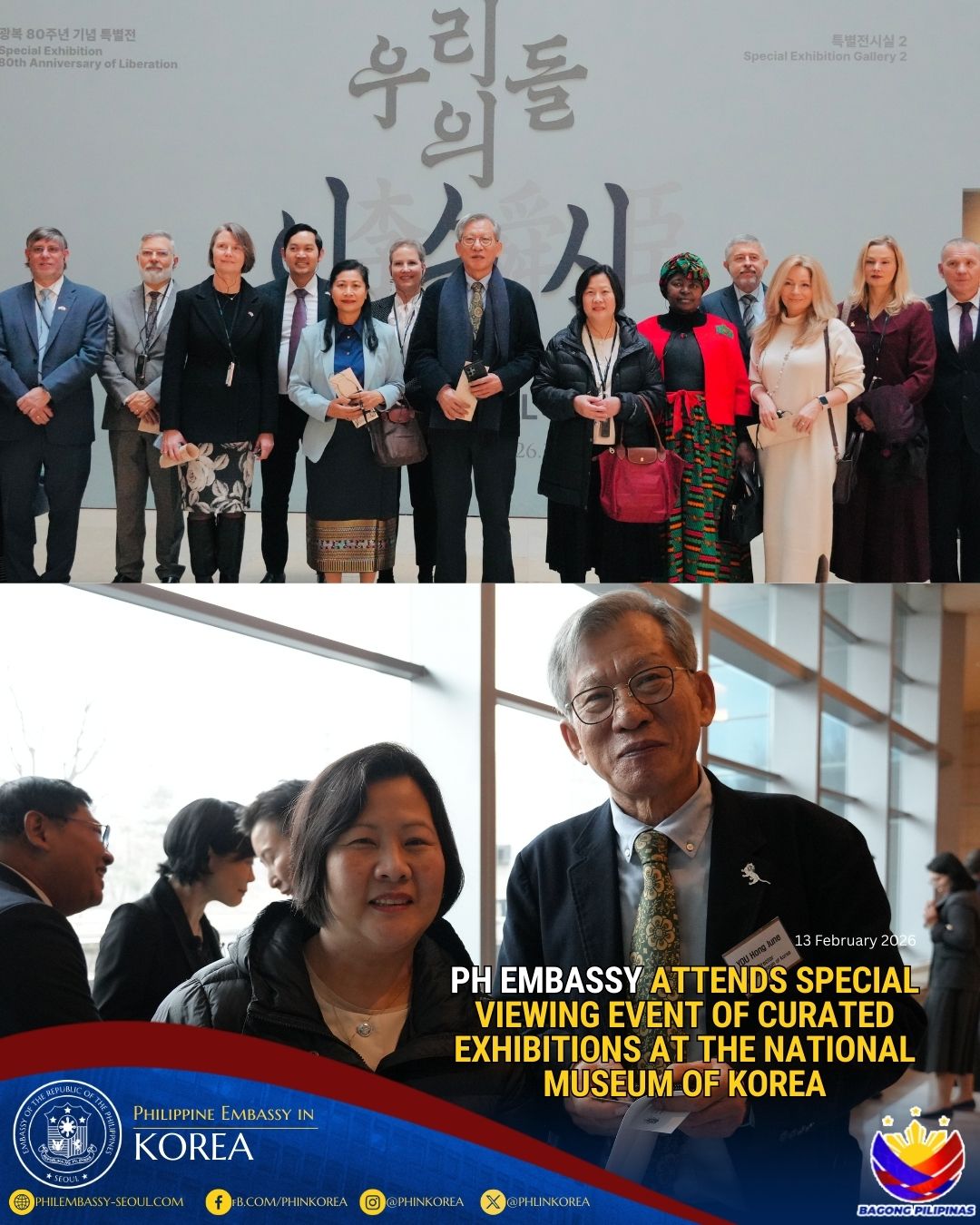Speech on the Multicultural Program of the MOPAS
Let me, at the outset, thank the Ministry of Public Administration and Security for organizing this very important program.
The issue of multiculturalism in South Korea is one that the Philippine Embassy in Seoul gives serious attention to. This is with good reason: the Philippines has 7,550 nationals married to South Koreans as of last year, making Filipinos the third biggest population of foreigners who have decided to make South Korea their new home. There are, of course, many successful marriages. The examples of Jasmine Lee and Judith Hernandez – Filipino marriage migrants who have made significant impact on the social landscape of South Korea – show how interracial couples can successfully raise a multicultural family. There are many other stories of migrants who have also successfully adjusted to their new lives. I am aware that common denominators for success include language skills and the open-mindedness of both the Filipino spouse and the Korean national. It is not enough, for example, that the Filipino adjusts to Korean culture; the Korean national must also begin to appreciate the richness of Filipino culture. Indeed, these successful unions are happy marriages not only of individuals, but also of cultures. There are those, however, who are still struggling to adjust to a multicultural setting, particularly when barriers of language and cultural expectations appear to be difficult to surmount. It is these marriages to which we must pay particular attention in order to ensure the rights and welfare of the couple and their children. Which is why I am very thankful to the Korean Government for its countless initiatives to assist marriage migrants. This particular program of inviting the parents of marriage migrants is one that I consider very important. The presence of the parents can achieve many things in just one visit. For instance, families that have been separated by migration are reunited. The parents are reassured of the welfare of their children and grandchildren. Filipino culture is further introduced to the Korean family while Korean culture can be brought back to the Philippines upon the return of the parents. The program also recognizes the hard work of the spouses, who have no doubt devoted time and effort to strengthen their respective families. The Philippine Embassy also has several projects that hope to assist marriage migrants. We have a program that introduces Filipino culture, including traditional songs and games, to Filipino-Korean children. We will also soon launch a DVD about Filipino culture for multicultural families, targeting not only the Filipino spouses and the Filipino-Korean children, but the Korean spouses and in-laws as well. Para naman po sa mga kababayan ko, gusto kong ipaalala na napakahalaga ng kontribusyon na binibigay ninyo hindi lamang sa inyong pamilya kundi pati na rin sa lipunan ng Pilipinas at Korea. Iniimbitahan ko po kayo na makipag-ugnayan pa sa Philippine Embassy para mas mapalawig pa namin ang mga programang patungkol sa multiculturalism. Pwede din po namin kayong ipakilala sa iba’t ibang organisasyon ng Filipino-Korean spouses. Magandang pagkakataon po ito para mas mapalakas pa ang network ninyo sa Korea. Let me end by reiterating my thanks and congratulations to the Ministry of Public Administration and Security for spearheading this program. As we say in the Philippines, Mabuhay!


 March 03, 2026
March 03, 2026
 February 27, 2026
February 27, 2026
 February 27, 2026
February 27, 2026
